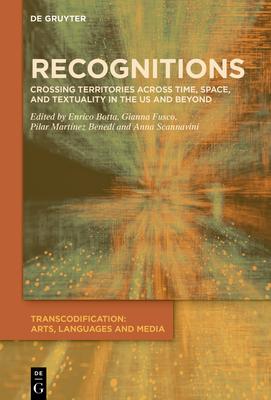This volume offers a critical exploration of the many ways in which transcodification acts at the intersection of literature, art, history, and social and cultural artifacts to foster instances of recognition in the US.
Recognition covers a wealth of meanings: from the mere acknowledgement of existence, validity or legality, or appreciation of something as valuable, to the identification of something as known or familiar. Accordingly, this volume deals with different struggles for recognition. One focus of the volume is the assessment of artistic achievement in relation to a so-called original, with essays concerned with cultural codes and with the role that translation, adaptation, and cross-cultural encounters have played in US artistic and literary productions. A second, parallel, strand focuses on the fight for political and social inclusion, or on the dynamics beneath the recognition of group and gender identities, to explore how activism and artistic/literary productions challenge received identity boundaries and accepted social and cultural hierarchies.
Bringing together recognition and transcodification/transculturality, the book deconstructs crystalized and codified categories and celebrates the crossing of boundaries.
